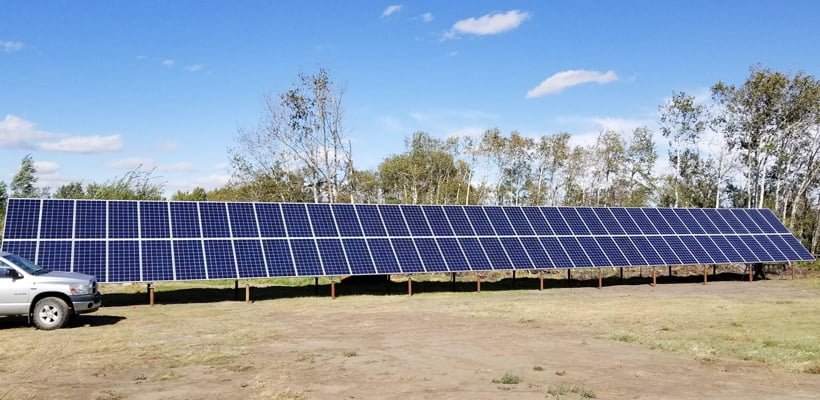Making The Switch To Solar Energy: A Step-By-Step Guide For Homeowners
October 6, 2023

As homeowners strive to mitigate the impact of increasing energy costs, adopting solar energy is a prudent financial decision. By leveraging solar energy, homeowners can reduce their energy bills while promoting sustainable practices. This transition to solar power offers significant cost savings and diminishes dependence on conventional energy sources.
If you still have lingering questions about how to get started and the associated costs, you’re in the right place. In this blog, we offer a detailed guide that covers everything you need to know about switching to solar energy, including the types of solar panels available and how to find reputable solar panel installers.
Assessing Your Home’s Suitability
The first step in the solar panel installation process is determining whether your home is suitable for solar panels. Several factors can impact the feasibility of your solar project, including the roof size and orientation, shading, structural integrity, and local regulations.
Ideally, your roof should be large enough to accommodate the number of solar panels you need to meet your energy needs. The orientation and tilt of your roof can also affect the amount of sunlight your panels receive, so choosing a location that gets the most sun exposure throughout the day is essential.
Solar panels are heavy, so your roof needs to be strong enough to support the weight of the panels and the equipment used for installation. A qualified solar panel installer can help you assess the structural integrity of your roof and make any necessary modifications.
In addition to rooftop solar panels, an alternative option to consider is the installation of ground-mounted solar panels. Ground-mounted systems offer advantages such as flexible positioning, optimal sunlight exposure, and simplified installation and maintenance procedures. It is advisable to consult with a professional solar panel installer who can assess your property and provide expert guidance in determining the most suitable option for your specific needs and requirements.
Design Considerations And Options
Once you’ve determined that your home is suitable for solar panel installation, the next step is to design your system. Several design considerations and options include the type of solar panel, number of panels, orientation, tilt, and inverter type.
Several types of solar panels are available, including monocrystalline, polycrystalline, and thin film. Each type has advantages and disadvantages regarding efficiency, cost, and durability. Your choice of solar panel will depend on your energy needs and budget.
The number of solar panels you’ll need will depend on your energy needs and the size of your roof. A qualified solar panel installer can help you determine your home’s optimal number of panels.
The orientation and tilt of your solar panels can impact the amount of sunlight they receive, so choosing a location with good sun exposure is essential. A qualified solar panel installer can help you assess the optimal location for your panels.
Also Read: Are Solar Panels Worth The Investment?
Installing Your Solar Panels
With your solar panel system designed, it’s time to move on to the installation process. You have two main options: DIY or professional installation. While DIY installation of solar panels can save you money upfront, it is essential to consider the potential drawbacks. DIY installation requires substantial time, effort, and technical expertise. Improper installation can lead to costly repairs and maintenance issues in the long run.
On the other hand, professional installation ensures that your system will be installed safely and efficiently and can save you money on repairs and maintenance. If you have experience with construction and electrical work, you can install your solar panels yourself. However, this option requires a significant time commitment and the ability to navigate complex technical requirements.
Look for a reputable installer with experience in solar panel installation, and be sure to ask for references and credentials before deciding. Hiring an expert installer offers several advantages.
They have the knowledge and skills needed to navigate the complexities of the installation process. They can help you obtain the necessary permits and ensure compliance with local regulations, saving you time and potential headaches. Experienced installers are well-versed in the specific requirements of your area, ensuring that your solar panel system meets all safety and code regulations.
Maintaining And Monitoring For Optimal Performance
Once your solar panel system is up and running, it’s essential to maintain and monitor it for optimal performance. Maintenance can help keep your panels operating at their full potential, while routine inspection can identify any issues before they become significant problems.
Inspecting your solar panels regularly for signs of damage or wear and tear is essential. If you notice any issues, scheduling annual assessments or inspections with a reputable installer like Sundawg Solar is recommended. Professional installers have the expertise to thoroughly evaluate your panels, checking for any signs of damage, wear, or reduced performance.
Another critical aspect of maintaining your solar panel system is monitoring its performance. Most solar panel systems come with a monitoring system that allows you to track your energy production and usage.
About Sundawg Solar
Sundawg Solar is a Saskatchewan-based solar energy company. We offer various solar systems for commercial, residential, and agricultural properties, including rooftop and off-grid solar power systems. Learn more about Sundawg Solar here.
Looking for experienced solar panel installers? Contact us today.
